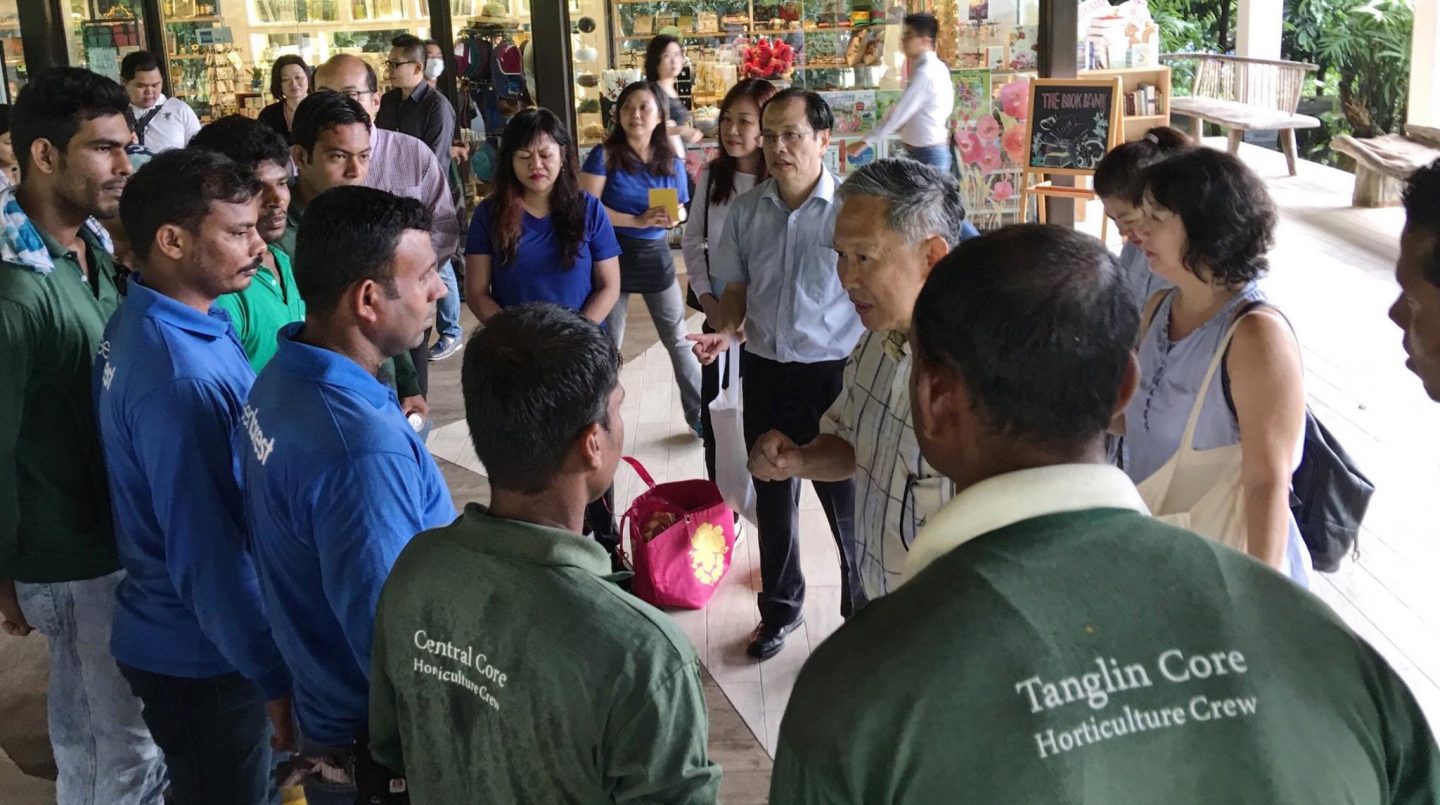We’re addicted to outrage.
PSLEs roll around. We’re outraged by the emphasis placed on one exam. We’re outraged by the lengths some people will go to to give their kids an advantage (I still don’t see why you need enrichment classes if you’ve actually grown up gifted). But when alternative methods to shield 12-year-olds from the stress of a national exam are introduced, we’re outraged by the fact that some will not have to go through the trial by fire.
Our young adult boys enter National Service to become men. We’re outraged by what they have to go through in army camps. We’re appalled by the length of the stint they have to spend in uniform. Then we’re incensed when some attempt to evade NS. Then we fume when the authorities wonder aloud if the length of service should be trimmed.
Trees – good for shade, nice to look at, sources of Oxygen. Good thing we’ve got a small army of groundsmen taking care of them across Singapore, right? But we quickly go from arbour amorist to abhorrent abuse when nature does what nature does.
Of course we can do better. Of course in hindsight there is always something that could have been done to mitigate against the worst-case scenario. Of course these are real and pressing issues that need solutions.
There are two common threads running through all of these examples:
1. The target of the complaints. The authorities, the decision-makers, the powers-that-be. There is a valid reason to sound out: To make sure that someone is doing something about it.
2. The source of the complaints. That could even include you.
Enough has been written about the first point. This is good and healthy: A functioning democracy should not only have its voice heard at the polls, but in the everyday, the ongoing, the response to what’s going on on the ground. Put plainly, the government is paid to do a job, and the stakeholders – the citizenry – should be conscious of making sure that this country is always improving in every way. Economically, educationally, quality of life.
But I have to table a complaint on the spirit of complaint in Singapore. It’s ugly, it’s infectious, it’s distasteful. It’s so sadly Singaporean.
Ultimately, what are we here to create? What do we all want from this land? Simply put: A better place to live.
The subjective word there is “better”. There are so many dimensions, so many ways to define that. Too many to list out, but I’d like to put forth a key (and slightly curious) one: Pleasantness.
You could make a place as comfortable, as well-appointed as you’d like, but if there is an air of unpleasantness about it, you wouldn’t want to stay there. For example, you could stay in freehold landed property, but as the Everitt Road saga showed, that could just make you more miserable if you’re engaging in unpleasantries with your (freehold, landed) neighbour.
Ultimately, what are we here to create? What do we all want from this land? Simply put: A better place to live.
Maybe you’re not so privileged to own a house. HDB it is. But if neighbours start getting into a spat over a bowl of curry, it leaves a bad smell in the air – and I don’t mean the curry.
It’s so tiring to be in a country where it’s damned if you do, damned if you don’t. It’s also paralysing – just ask America.
Of course, I can’t just complain without offering a solution. So here it is: Try a little kindness. If something goes wrong on someone’s watch, consider not just blame and punition, but how to better prepare him to fix the problem, for future benefit.
There’s a lot of merit to being slow to speak, slow to anger. It diffuses tension, turns attention to the issue at hand, points fingers away from blame and toward actual improvement. You get people to focus on dealing with the issue, not the criticism; you get people to be constructive, not defensive.
There’s a lot of merit to being an encouragement, not a discouragement. It motivates people to do their job well, not paralysed with fear of recrimination. After all, you are the one who bears the fruit of their labour.
There’s a lot of merit to being kind. You reap what you sow. A spirit of kindness, rather than complaint, rippling through this nation means that one day, when something goes wrong at work, in your department, maybe by then the culture will be one where the reflex reaction isn’t to fire you, but to unearth the root of the problem, and learn how to do it better next time.
Trees will fall. Infrastructure will creak. We should try to fix those issues. But outrage doesn’t help.
So where should we start? Just like with a dying tree, you start by looking within.









